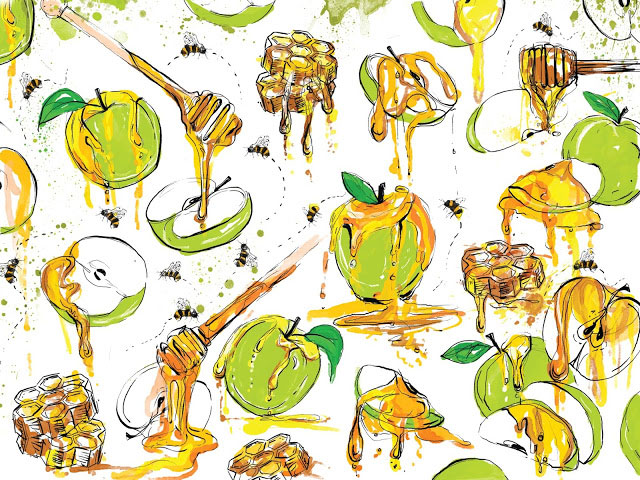The Jewish new year greetings for this time of year reflect our prayers for a good, sweet year ahead. On the first night of Rosh Hashanah, we wish l'shanah tovah tikatevu v'techatemu: "May you be inscribed and sealed for a good year." The main thing is to wish each other a good, sweet year with all our heart – because that is what God values most.
Rosh Hashanah is packed with mitzvahs, special foods and traditions but the central observance of Rosh Hashanah is the sounding of the shofar, the ram's horn, on both days of the holiday.
Why the shofar?
The blowing of the shofar represents the trumpet blast that is sounded at a king's coronation. Its plaintive cry also serves as a call to the month of repentance. The shofar itself recalls the Binding of Isaac, an event that occurred on Rosh Hashanah in which a ram took Isaac’s place as an offering to God. The shofar fills us with awe and humility as we contemplate God, how God fills all space and time. The Chassidic masters teach us that the cry of the shofar is akin to the wail of a child, yearning to be reunited with a beloved parent. There are no words to express a longing that is so deep, so primal and so true. On Rosh Hashanah we give expression to the cry of our soul.
The Torah readings on Rosh Hashanah offer an honest portrayal of Abraham and Sarah. On a day when we contemplate our own character flaws and imperfect lives, we read about Abraham and Sarah's troubled relationship, the complex account of Ishmael's birth, Sarah's disturbing expulsion of Hagar and Ishmael and the day when Abraham almost slaughtered his own child. Despite all of this, we also look up to Abraham and Sarah as people who helped shape the religion and faith with which we identify. We tell these stories on Rosh Hashanah -- the anniversary of the creation of human beings -- because they remind us that all people, including those we look up to as our founding patriarchs and matriarchs, are filled with character flaws. Human beings are imperfect, and despite that eternal truth, we never lose hope in our potential to achieve great things.
The reading is followed by a Haftarah about Hannah's prayer for children teaches that God fulfills even the most improbable of requests. Her song of gratitude is a shining example of how we need to thank God for our life every day. Her life takes on greater dimensions in the birth of Samuel the Prophet. From her sorrow to her joy, Hannah’s story is really the story of the Jewish people.
After the conclusion of the prayers, we go home and have a festive meal, certain that it has been decreed that we will have a sweet new year. It is customary to eat sweet foods, symbolizing our desire to have a sweet year, blessings and abundance. Throughout the meal, it is customary to also eat foods whose names allude to blessing and prosperity. We dip a piece of sweet apple into honey. Before eating it we say: May it be Your will to renew for us a good and sweet year. A head of a fish, ram, or other kosher animal, is served. This symbolizes our desire to be at the "head of the class" this year. A pomegranate is eaten, symbolizing our wish to have a year full of mitzvot and good deeds as a pomegranate is filled with luscious seeds.
In Israel, there is a palpable sense of excitement within Jewish National Fund’s extended family in anticipation of the upcoming holiday, and the opportunities that are available now for the children the living along the Gaza border as well as all of our children with disabilities in Israel -- will have the same sense of belonging, of being part of the family, of being an integral part of the Jewish nation.


